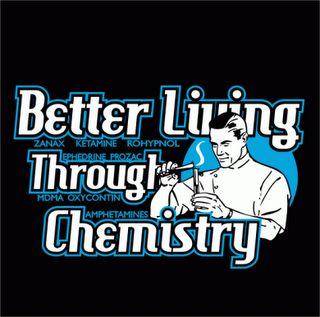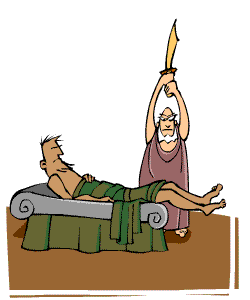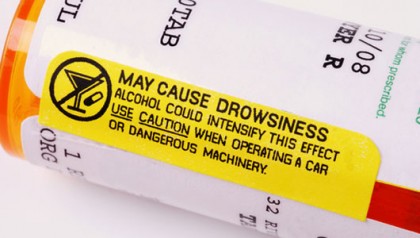Reductionism and Other Mental Illnesses
Devra Torres | Apr 26, 2013 | 4 cmts
Lately I've run into some exceptionally interesting articles on mental health (by John Janaro


and Gregory Popcak).

It occurs to me how closely related to personalism this subject is. In the quest to “become who you are” (not somebody else, and not some lesser version of yourself)—in the struggle to sort through all the bogus and genuine paths to fulfillment and maturity, where exactly do mental illness and its treatment fit in?
Simple! (I used to think) Mental illness is scandalously overdiagnosed! Drugs are shockingly overprescribed! Every squirmy little boy is saddled with an ADHD label, every sleep-deprived new mama is PPD, every moody adolescent bipolar. Besides, didn’t I see a study just the other day proving that if you get lots of fresh air and exercise and cut down on Twinkies, it’s just as effective as 50 milligrams of Prozac? Or something?

How had I come by that opinion? I'd found that the people who believed in free will and personal responsibility tended to be skeptical about mental-health diagnoses and psychoactive medication. On the other hand, people who didn’t really believe in free will, good and evil, or even truth and falsity, tended to consider every mental or spiritual mishap a physical problem with a material solution.

So I surveyed the landscape, picked my team, and complacently settled down to do some (mostly benevolent) judging.
What changed my mind was listening to people who had actually dealt with these illnesses. Over and over again, I'd find that someone I admired—who looked to be leading the kind of fulfilled, virtuous life I kept trying to get the hang of—had been diagnosed with something and, more often than not, was taking something, too. It started to seem like all the most interesting people I knew were dealing with a diagnosis.
I didn’t change my mind just because I liked them and didn’t want to think them wrongheaded. I just came to realize that in dismissing both the reality of the condition and the plausibility of the treatment, I literally didn’t know what I was talking about. Their own descriptions lessened my cluelessness a little.
For example, here’s Steve Gershom’s account of the difference after he very, very reluctantly started taking the “happiness pills”:

it’s like someone turned the volume down on the poisonous thoughts, or took the hooks out of them. When a sad thought occurs to me, I can decide not to think about it, although it might grumble in the background a little; it doesn’t tackle me, eat me alive; it doesn’t grow another head for every one I chop off.

Is this how most people are, most of the time?
And my friend Jessica explains:
Most people who really need psychiatric drugs aren't on them. They are either too ashamed to seek help, or they are stuck in the therapy loop.... [L]ots of Catholics blame you for having a psychiatric disorder. "You just don't have a strong enough faith in God's forgiveness," they'll say. My belief in God's forgiveness is fine, but I have a disorder that sends terribly disturbing thoughts and images through my mind as often as one per thirty seconds. I wish I had back the years that I went without OCD medication…

And my friend Henry relates a friend’s response to his having discontinued his anti-depressant:
He said that he had noticed the effect--that I seemed to be "further away," not the "real Henry." He pointed out that the medication was not actually changing me, but clearing away something that stood between the person God had created and the outside world, especially other people. I have been taking medication ever since, along with some "talk therapy," …And now I realize why for nearly 50 years, I was constantly under some kind of a cloud.
Reductionism is rampant when it comes to mental illness. It’s “just” a physical, or a spiritual, or a chemical, or an imaginary problem.
But reductionism, in any context, is bad, bad news. It keeps you from “walking in the truth.” It creates labels and compartments that separate you from reality (as thoroughly as some mental illnesses do), and it makes you unable to see that it's happening. The reductionist takes a quick glance at some piece of the world, finds out what people are saying about it, sticks it in a compartment, and stops being able to see it at all. Reductionism cuts you off from wonder, and from solutions that might help. It squeezes people into a Bed of Procrustes.

Its social dimensions can be enormous, too, as John Janaro explains in this post (worth reading in its entirety). He lays bare the silliness of trying to oversimplify this whole tangled web of brain and soul, good and evil, spiritual warfare and science. And he adds:
What afflicts the human body afflicts the human person. This makes us afraid. It makes us want to distance ourselves. It tempts us to isolate the sufferer, because otherwise we might have to look at him or her and see the reflection of ourselves, and our own suffering.
Here is a challenge for our culture that no one wants to confront. Here is a form of discrimination that everyone practices and no one denounces…. One might even coin a sociological term of reference for it, although it's not likely to catch on:
Pathophobia: ...The fear of suffering. The dread of suffering. The full-scale flight from suffering, or the cover-up of real suffering with fake solutions, and then the marginalization of those whose problems we cannot pretend to have solved.
I still believe overdiagnosis and -treatment are a problem in some contexts. Stories like this are disturbing, and surely one in five high school boys doesn’t really have ADHD. Underdiagnosis is clearly a problem, too.
But maybe reductionism is the most harmful prescription of all.


Comments (4)
Katie van Schaijik
Apr 27, 2013 10:44am
The body/soul composit is such a mysterious and inscrutable thing, isn't it? It's so hard to teaze out the sources and causes of our miseries.
Jules and I had a deeply religious colleague about 20 years ago, who was an outstandingly warm, happy, out-going woman with a big, sociable personality. Unless a depression hit. When it hit, it was horrible. Her face changed. She would be in bed for days or weeks, crying, wretched, terrified it would never end. When it lifted, she was herself again.
Once, when she had the stomach flu, I asked how she was doing. She beamed, "Oh this is nothing! This is normal sick. This is just my body." She described the depression as in interior invasion, an assault on her soul from within.
Ever since then, I've viewed mental illness differently.
John Janaro's book helped me a lot too.
But, like you, I still worry about over-prescribing. I still have worries that anti-depressants in many cases mainly serve to mask spiritual issues that need addressing.
Devra Torres
Apr 27, 2013 12:27pm
Yes, John's book was great, and really fills a gap in that kind of literature.
I was trying to work out a principle for when medication is reasonable and when it's not, but I then I remembered how little I know about the subject and how I was writing a blogpost, not a book. But it seems to me there's an analogy to be made with fertility treatments--the difference between the kind that help the body do what it's meant to do and those that just step in and commandeer the body and replace its processes with something else altogether. The way some people describe medication seems like the first: removing an obstacle so you can go back to being yourself--but I've also heard other kids of descriptions. One friend told me her antidepressant dulled the pain but also dulled everything else. Someone else told me he got into a minor car accident while on prozac--not because of the prozac, I don't think, but his own reaction spooked him--he just remained calm and mellow. That had its advantages, but it felt like he had turned into another person altogether. So he got off it.
Katie van Schaijik
Apr 27, 2013 1:01pm
I like that fertility treatment analogy a lot.
I also like the examples you offer. I so admire the professionals who really dig into this stuff and try to find the right terms, principles, and limits. I've see it in my learning about hospice and end-of-life treatments—another ethically tricky and challenging zone.
Some of us pro-lifers are so alert to the "culture of death mentality" that we get into a mode of "whatever prolongs life is good". But that mode, too, often winds up hurting the persons it means to serve.
We have to be willing to be attentive to the concerete, and respectful toward the people who are dealing daily in the concrete.
Devra Torres
Apr 28, 2013 12:27pm
Yes, it's easy to be "political reductionists," especially with issues that matter as much as the protection of life. My grandmother, a nurse and political liberal (and the wife of Uncle Lenny the Unspontaneous), went for years assuming that the Catholic position on eand-of-life treatment was "prolong biological life at any cost" but was open-minded enough to read a Church document explaining the teaching, and she was happily surprised to find she wholeheartedly agreed with it. She also became pro-life on abortion once ultrasound technology showed the humanity of the babies. It's easy to bemoan the lack of honest liberals like her, but we also have to make sure to be honest conservatives, or honest traditional-minded citizens, or honest whatever-we-are.